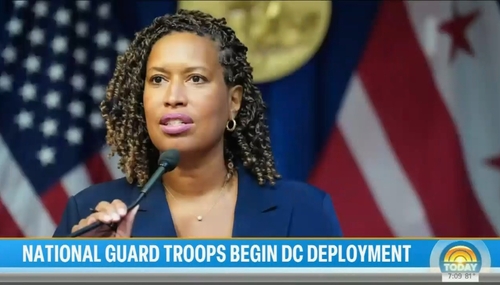Starting Friday night, CBS began previewing an exclusive “60 Minutes” interview with Leon Panetta, which aired Sunday night, where the former Secretary of Defense said he had advised President Obama to arm the Syrian rebels as early as 2012.
Despite Panetta’s criticism of President Obama’s strategy to combat ISIS, ABC and NBC have ignored the story altogether since the preview for the interview first aired on Friday’s CBS Evening News w/ Scott Pelley.
During an interview with CBS’s Scott Pelley, Panetta argued that in order to defeat ISIS “my view was to have leverage to do that, we would have to provide the weapons and the training in order for them to really be willing to work with us in that effort.”
After being asked by Pelley if not arming the moderate Syrian rebels was a mistake, Panetta maintained that “I think that would have helped. And I think in part we paid a price for not doing that in what we see happening with ISIS.”
During the interview, Pelley pointed out that Panetta was not the lone Obama official to urge the president to arm the Syrian rebels:
It turns out President Obama was urged to intervene in Syria much earlier. In a new book "Worthy Fights," former Defense Secretary Leon Panetta writes that in a meeting in the fall of 2012, he, Secretary of State Hillary Clinton, the director of the CIA, and the Chairman of the Joint Chiefs all urged the president to arm moderate Syrians who had started the revolution against the dictatorship to begin with. That might have left no room for ISIS to grow.
Prior to the 60 Minutes interview, CBS aired two preview clips on Friday night and Saturday morning, totaling 3 minutes 48 seconds.
Rather than cover Panetta’s harsh criticism of President Obama for failing to arm Syrian rebels over a year ago, NBC’s Today spent four minutes interviewing Gwen Stefani to promote the new season of “The Voice.” ABC’s Good Morning America spent more than 5 minutes hyping a new clothing line inspired from the television show “Scandal.”
See relevant transcripts below.
CBS Evening News w/ Scott Pelley
September 19, 2014
SCOTT PELLEY: ISIS seized a third of Iraq that had been secured by the United States after 10 years of sacrifice. Tonight, in an interview for "60 Minutes," former Secretary of Defense Leon Panetta says that ISIS flourished because the U.S. got involved in Syria too late and left Iraq too soon. [Speaking to Panetta] Back when you watched the stars and stripes being lowered for the last time in Baghdad, were you confident in that moment that pulling out was the right thing to do?
LEON PANETTA: No, I wasn't. I-- really-- I really thought that it was important for us to maintain a presence in Iraq.PANETTA: But the elected Iraqi prime minister, Nouri al-Maliki, didn't want the U.S. force. As Iraq moved on, on its own, civil war broke out in Syria. The U.S. stayed largely on the sidelines but Panetta says the national security team urged the president to do more.
PANETTA: The real key was how can we develop a leadership group among the opposition that would be able to take control, and my view was to have leverage to do that, we would have to provide the weapons and the training in order for them to really be willing to work with us in that effort.
PELLEY: But with virtually his entire national security team unanimous on this, that's not the decision the president made.
PANETTA: I think the president's concern-- and I understand it-- was that he had a fear that if we started providing weapons, we wouldn't know where those weapons would wind up. My view was you have to begin somewhere.
PELLEY: Sunday, on "60 minutes," we'll report from Iraq and Syria on Isis what it is, what it wants, and how to defeat it. The 47th season premiere of "60 Minutes" this Sunday after football.
CBS This Morning: Saturday
September 20, 2014
JEFF GLOR: In an interview with "60 Minutes" former Defense Secretary Leon Panetta told Scott Pelley that ISIS flourished because the U.S. got involved in Syria too late and left Iraq too soon.
SCOTT PELLEY: Back when you watched the stars and stripes being lowered for the last time in Baghdad, were you confident in that moment that pulling out was the right thing to do?
LEON PANETTA: No, I wasn't. I-- I really-- I really thought that it was important for us to maintain a presence in Iraq.PANETTA: But the elected Iraqi Prime Minister, Nouri al-Maliki, didn't want the U.S. force. As Iraq moved on, on its own, civil war broke out in Syria. The U.S. stayed largely on the sidelines but Panetta says the national security team urged the president to do more.
PANETTA: The real key was how can we develop a leadership group among the opposition that would be able to take control, and my view was to have leverage to do that, we would have to provide the weapons and the training in order for them to really be willing to work with us in that effort.
PELLEY: But with virtually his entire national security team unanimous on this, that's not the decision the president made.
PANETTA: I think the president's concern-- and I understand it-- was that he had a fear that if we started providing weapons, we wouldn't know where those weapons would wind up. My view was you have to begin somewhere.
GLOR: Also on “60 Minutes” tomorrow night Scott reports from Iraq and Syria on ISIS. What it is, what it wants, and how to defeat it. That's the 47th season premiere of “60 Minutes” tomorrow at 7/6 Central.
CBS This Morning
September 22, 2014
NORAH O’DONNELL: And the president's plan to defeat ISIS calls for arming and training moderate rebel groups in Syria. On “60 Minutes Sunday” Scott Pelley interviewed Jordan’s King Abdullah and former Defense Secretary Leon Panetta. Both men witnessed the ISIS threat from the beginning.
SCOTT PELLEY: Could the rise of ISIS have been prevented?
KING ABDULLAH: They could have been prevented if the international community worked harder together to make sure that funding of support to the original groups in Syria were not allowed to get to the extent that they were.
PELLEY: The international community, the United States intervened too late.
ABDULLAH: I think we could have done a better job in making sure that earlier on it was identified who the bad people were and action by the international community was taken not to allow that to happen.
PELLEY: It turns out President Obama was urged to intervene in Syria much earlier. In a new book "Worthy Fights," former Defense Secretary Leon Panetta writes that in a meeting in the fall of 2012, he, Secretary of State Hillary Clinton, the director of the CIA, and the Chairman of the Joint Chiefs all urged the president to arm moderate Syrians who had started the revolution against the dictatorship to begin with. That might have left no room for ISIS to grow.
LEON PANETTA: The real key was how can we develop a leadership group among the opposition that would be able to take control and my view was to have leverage to do that, we would have to provide the weapons and the training in order for them to really be willing to work with us in that effort.
PELLEY: But with virtually his entire national security team unanimous on this, that's not the decision the president made.
PANETTA: I think the president's concern -- and I understand it -- was that he had a fear that if we started providing weapons, we wouldn't know where those weapons would wind up. My view was you have to begin somewhere.
PELLEY: In retrospect now, was not arming the rebels at that time a mistake?PANETTA: I think that would have helped. And I think in part we paid a price for not doing that in what we see happening with ISIS.




